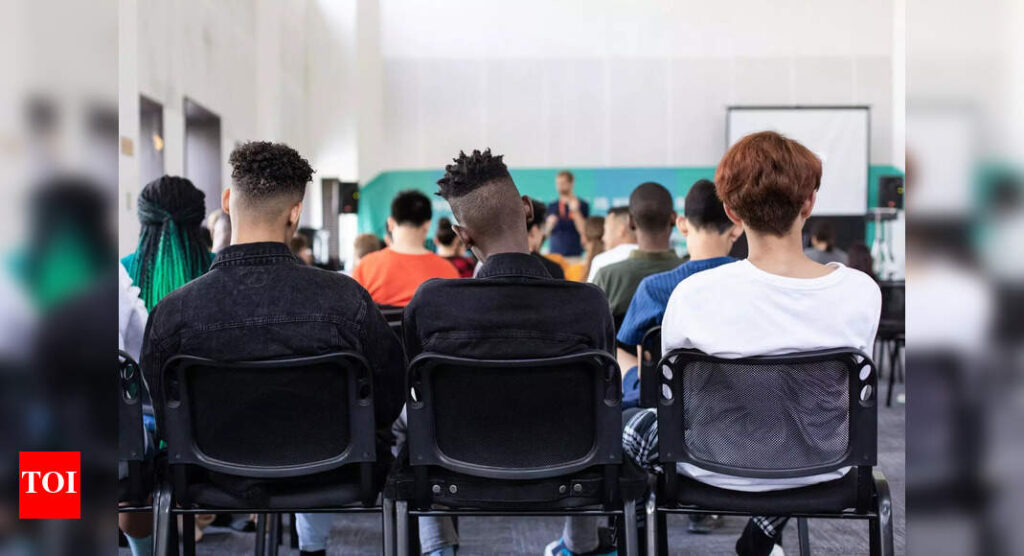Burlington schools see fewer racial disparities in student suspensions: A turning point in Vermont’s equity efforts

The Burlington School District in Vermont has reached what officials are calling a major milestone in its decades-long effort to reduce racial bias in school discipline.According to data released last week, students of colour, who make up about 42% of Burlington’s pre-kindergarten to grade 12 population, accounted for only 33% of suspensions in the last academic year. That marks a significant decline from 2012-2022, when they represented half of all suspensions despite comprising just 38% of enrolment.The total number of suspensions across the 3,200-student district also fell from 248 two years ago to 207 last year, reflecting a 17% overall decrease, the Associated Press (AP) reports.
Decades of work towards equity
In a state that remains among the whitest in the United States, Burlington’s progress stands out. The Vermont Agency of Education defines educational equity as “the degree of achievement, fairness and opportunity in education as measured by a standard of success.” Yet many districts, Burlington included, have long struggled to translate statements of equity into measurable outcomes.Racial disparities in discipline have persisted across Vermont, with repeated reports of harassment and racial bias within schools. Burlington’s leaders, however, have made this issue a focus for decades, acknowledging research that links suspensions to lower academic performance and higher dropout rates.Henri Sparks, Burlington’s Director of Equity, said the shift reflects intentional reform. “When students of the global majority succeed, all students succeed,” he told AP, referring to Black, Asian, brown, Indigenous and multiracial students.
Rethinking discipline through a restorative lens
The district’s revised restorative code of conduct, introduced in 2023, has been central to the change. It limits suspensions to extreme cases and eliminates automatic suspensions for infractions such as fighting, smoking and vaping. The reforms also prioritise building stronger relationships between staff and students, and fostering understanding across cultural divides.Sparks said that in the past, many students of the global majority were suspended for reasons that did not warrant such penalties. Now, teachers are being trained to interpret behaviour in a broader social and emotional context.The data supports the shift: lost school days due to suspension fell from 426 in 2023-2024 to 305 in 2024-2025, while the average length of suspension declined from 1.72 to 1.47 days.
Building inclusive classrooms
The district attributes this progress to a series of initiatives introduced since 2021. These include a Summer Racial Justice Academy, designed to cultivate youth leadership and encourage students to advise the school board, as well as anti-racist professional learning communities for staff. Burlington has also hosted virtual equity workshops exploring issues such as dismantling white supremacy and preventing bullying and harassment.Sparks said these efforts are helping educators recognise the social and emotional needs of diverse learners. “First and foremost, they want to succeed,” he said, “and it is our responsibility to ensure that they are successful, without barriers created by adults in our schools,” according to AP.
A commitment amid political headwinds
Burlington’s achievement comes at a time when diversity, equity and inclusion programmes are facing political backlash at the national level. District leaders say they intend to continue the work regardless of federal policy shifts.Sparks told AP that while federal cuts to equity programmes are concerning, Burlington’s commitment remains firm. “We still have to figure out how to do this work better in spite of all the changes,” he said.Superintendent Tom Flanagan echoed that sentiment, saying he joined Burlington because of its community’s willingness to confront inequities in education. “My core responsibility is to create equity in our system,” he said. “The inequities show up in discipline and achievement, and that is where we are making progress.”Flanagan added that the majority of students, families and staff support this mission, which he credits for driving recent improvements.
Looking ahead
For Burlington, reducing suspension disparities marks more than an administrative success, it signals a cultural shift within classrooms. By focusing on restorative practices, inclusive teaching, and shared accountability, district leaders believe they are creating a more just system where every student has a fair chance to thrive.As Sparks put it, Burlington’s equity journey is far from over, but it is finally showing results that others across Vermont may soon look to replicate.





